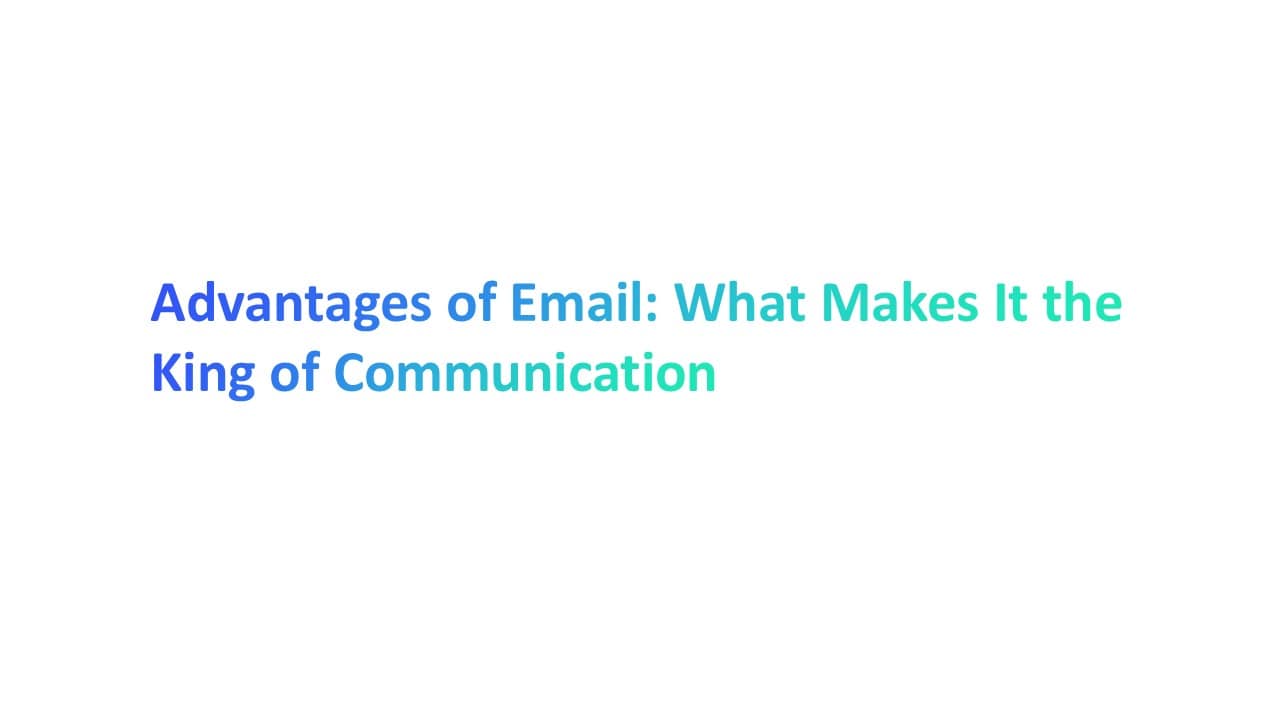Empathy in sales emails isn’t just about being polite, it’s about truly understanding customer concerns and responding in a way that makes them feel heard. A study by HubSpot found that 68% of customers are willing to pay more for better customer experience, which starts with thoughtful communication.
When sales professionals acknowledge customer pain points and use empathetic language, they create stronger relationships that lead to increased sales. Instead of sounding robotic, a well-crafted message with active listening techniques and personal connection can make all the difference. The key is to focus on the person behind the email, not just the sales process.
How Does Empathy Enhance Customer Satisfaction?

1. Understand Customer Emotions
Empathy begins with recognizing customer emotions and how they impact decision-making. A customer service representative who actively listens can detect frustration, hesitation, or excitement, allowing them to communicate more effectively.
By using empathetic language, businesses can create a positive customer experience that reassures customers they are valued.
Small details, such as acknowledging concerns and responding with understanding, help in building trust and strengthening customer relationships.
2. Identify and Solve Pain Points
Customers often reach out when they face difficult situations or have unresolved pain points with a product or service. Simply offering a solution isn’t enough, what matters is how the issue is addressed.
Using clarifying questions helps to fully understand their concerns, making it easier to provide effective solutions. Customer feedback is another valuable tool for identifying common customer concerns and refining services.
Showing that a company listens and acts on feedback enhances customer satisfaction and builds long-lasting customer relationships.
3. Communicate Value Quickly
Customers appreciate clear, direct communication. A well-crafted message should highlight true value without unnecessary jargon. A business that respects the customer’s time by delivering concise, meaningful interactions improves the overall customer experience.
Whether through a sales email, a conversation, or customer support, the key is to present information in a way that feels helpful, not promotional.
Building rapport through positive interactions leads to stronger relationships, ensuring the customer feels heard and valued.
By practicing empathy in sales, companies can create better customer experiences, leading to higher customer loyalty and trust.
“Struggling with low email deliverability? With Alore’s Warm-up Campaign, you can automate email warm-ups, ensuring your emails land in inboxes, not spam. Start optimizing your email reputation today!”
How Can Empathy Strengthen Customer Relationships?

1. Personalize Your Approach
A customer’s unique needs should shape every interaction. Instead of using generic messages, taking the time to understand a customer’s position creates a more meaningful connection. Salespeople who use empathy phrases and open-ended questions can better understand a person’s expectations.
Incorporating empathy into emails or conversations makes the customer feel valued, which leads to stronger relationships.
When a company actively listens and acknowledges concerns, it demonstrates a true commitment to customer satisfaction.
2. Build Trust Through Authenticity
Trust comes from genuine communication, not scripted responses. Using empathy statements and acknowledging customer emotions helps create great customer relationships.
A business that values emotional intelligence and demonstrates empathy earns credibility. Customer feedback plays a key role in understanding expectations and improving services.
When companies act on feedback, they show customers that their opinions matter, leading to customer retention and deeper understanding of their needs.
3. Use Social Media for Engagement
Social platforms provide an opportunity for real conversations. A customer service representative can use these channels to respond quickly, answer questions, and build an empathetic relationship.
Engaging with potential customers through thoughtful replies rather than automated responses makes interactions feel personal. Non-verbal cues, like tone in written messages, can help convey warmth and positive impact.
Social media isn’t just for marketing; it’s a way to strengthen customer relationships by showing genuine interest in their concerns.
By using communication that reflects understanding and care, businesses create long-lasting customer relationships that go beyond a single transaction.
What Role Does a Customer Service Representative Play in Empathetic Communication?

1. Listen Actively to Customer Needs
A customer service representative is often the first point of contact when customers reach out with concerns. Instead of just hearing, they must practice active listening to fully understand the customer journey and provide relevant solutions. When customers feel truly heard, they are more likely to develop customer loyalty and trust the brand.
How Active Listening Strengthens Communication
- Acknowledges customer's perspective and emotions.
- Helps in identifying customer concerns early.
- Creates a personal level of engagement.
- Reduces frustration, especially for angry customers.
2. Tailor Responses for Better Impact
Every customer is different, and their concerns require tailored responses rather than scripted answers. A sales professional who recognizes customer’s shoes—their unique needs and expectations, can provide a more meaningful and helpful experience. Showing empathy through responses leads to deeper connections and enhances customer relationships.
Ways to Customize Responses
- Adjust tone and language based on the customer's feelings.
- Address specific customer pain points instead of giving generic replies.
- Use empathy statements that acknowledge concerns.
- Offer effective solutions suited to the situation.
3. Respond Thoughtfully to Inquiries
A thoughtful response goes beyond answering a question—it ensures the customer feels valued. This is where empathy in sales plays a key role in building trust and long-term engagement. The ability to convey empathy through words and actions improves customer communications and fosters stronger relationships.
Using Emotional Intelligence in Customer Conversations
- Recognize emotions and adjust the response accordingly.
- Avoid dismissing concerns, even when dealing with difficult situations.
- Keep a positive attitude while addressing complaints.
Handling Negative Experiences with Care
- Use facial expressions and non-verbal cues in live interactions.
- Respond with patience to angry customers and de-escalate tension.
- Follow up to ensure the issue was resolved, reinforcing customer loyalty.
Encouraging Meaningful Customer Interaction
- Ask open-ended questions to understand expectations better.
- Express gratitude after resolving a concern, showing the brand’s value.
- Offer personalized solutions to build long-lasting customer relationships.
By focusing on empathetic communication, a customer service representative helps establish better customer experiences, leading to improved customer retention and satisfaction.
How Can Customer Feedback Inform Empathetic Messaging?

1. Encourage Open and Honest Feedback
Listening to customers is the first step in crafting messages that reflect their needs. Customer communications should make it easy for people to share their thoughts, whether through surveys, emails, or direct conversations. A well-structured sales process considers feedback as a continuous loop, ensuring messages remain relevant.
Why Open Feedback Matters
- Helps understand the customer’s perspective on products and services.
- Identifies gaps that may not be visible from the company’s side.
- Strengthens customer interactions by making them feel heard.
2. Adapt Emails Based on Customer Insights
Personalized emails come from better understanding what customers expect. Every customer interview or response provides valuable details that improve future communication. Using empathetic messaging ensures emails are not only professional but also reflect a genuine effort to connect.
Ways to Use Customer Insights Effectively
- Adjust tone and language to match customer expectations.
- Include details that address specific pain points mentioned in surveys.
- Use a more conversational tone to build an emotional connection.
3. Acknowledge and Act on Feedback
Customers appreciate when their opinions lead to real changes. A simple acknowledgment can reinforce trust and show that feedback is taken seriously. Recognizing the key benefits of customer insights helps create messages that resonate better.
Demonstrating Empathy Through Action
- Show additional value by addressing common concerns in emails.
- Use follow-up messages to highlight updates made based on feedback.
- Maintain a consistent service experience by refining responses.
Building Trust Through Meaningful Engagement
- Use customer’s shoes as a guiding principle—view situations from their side.
- Ensure own emotions do not override professional responses.
- Show appreciation for feedback, reinforcing customer relationships.
By treating feedback as a powerful tool, businesses create stronger connections with customers. Empathy demonstrates a company’s commitment to better service and lasting relationships.
How Does Empathy Foster Customer Loyalty?

1. Offer Personalized Support
Customers expect more than just a standard response, they want a company that listens and understands their unique needs. Demonstrating empathy in every interaction ensures that customers feel valued and heard. A personalized approach builds trust, making it easier to maintain long-term relationships.
Ways to Provide Personalized Support
- Understand the customer’s point before offering solutions.
- Adjust responses based on positive attitude and care.
- Use a well-crafted sales pitch that reflects the customer’s needs.
2. Keep Customers Engaged
Regular and thoughtful communication keeps customers connected to a brand. Whether through follow-up emails, social media interactions, or exclusive content, businesses that consistently convey empathy build deeper connections. A customer who feels engaged is more likely to stay loyal.
How to Keep Customers Interested
- Deliver relevant updates that provide deeper sense of connection.
- Show building trust by addressing concerns promptly.
- Offer insights that prove the company involves understanding of their needs.
3. Recognize and Reward Loyalty
Loyal customers are the foundation of a strong business. Recognizing their support through special offers, thank-you messages, or exclusive benefits reinforces customer loyalty. A simple gesture can lead to more sales and create a lasting impact.
Effective Ways to Reward Loyalty
- Provide early access to new products for lead generation.
- Give discounts or perks to gain trust and appreciation.
- Show recognition in ways that feel genuine and express gratitude.
By focusing on better outcomes and the well-being of customers, businesses can build strong, lasting relationships that go beyond just transactions.
Tips for Crafting Empathy-Driven Sales Emails

1. Put Yourself in Their Shoes
Understanding a customer’s experience starts with seeing things from their perspective. Instead of focusing on what you want to say, think about what they need to hear. A thoughtful message shows that you recognize their concerns, making your email feel more genuine.
How to Understand the Customer’s Perspective
- Read previous interactions to understand their needs.
- Use a tone that matches their situation—supportive when needed, direct when appropriate.
- Acknowledge any past issues they’ve had to show you’re listening.
2. Balance Professionalism and Friendliness
A sales email should feel personal but also professional. Too much formality can make it cold, while being overly casual may not feel appropriate. Striking the right balance keeps the conversation comfortable.
Ways to Maintain a Natural Tone
- Avoid stiff, overly formal phrases.
- Use contractions and natural wording to keep it conversational.
- Keep sentences clear and to the point.
3. Use Conversational and Relatable Language
People connect better with messages that feel natural. Avoid jargon that might be confusing or make the email feel distant. Your goal is to write as if you were having a real conversation.
Simple Adjustments for a Conversational Tone
- Use words and phrases that people actually say in daily life.
- Ask a question to make it feel interactive.
- Keep sentences short and easy to read.
4. Keep the Focus on the Customer, Not the Sale
Sales emails shouldn’t feel like advertisements. Instead of pushing a product or service, focus on how it benefits the recipient. This approach builds trust and encourages engagement.
How to Shift the Focus
- Address a specific challenge the customer faces.
- Offer useful information before mentioning your product.
- Show understanding of their business or situation.
5. Use Positive Reinforcement
Encouragement makes an email more engaging. Positive language helps reinforce that your message is helpful, not just another sales pitch.
Ways to Use Encouraging Language
- Recognize any progress they’ve made in their industry.
- Highlight how their past choices have led to success.
- Frame suggestions in an uplifting way.
6. Avoid Generic or Robotic Phrases
Clichés and automated responses make emails feel impersonal. Personalizing your message shows the recipient that you put thought into the conversation.
How to Make Emails Feel More Personal
- Write how you would speak in real life.
- Avoid overused phrases like “Hope this email finds you well.”
- Use real details about the recipient when possible.
7. Mirror the Customer’s Tone
People feel more comfortable when they sense familiarity. Adapting your tone to match the recipient’s communication style makes interactions feel more natural.
How to Match Their Tone
- If they are formal, keep your response professional.
- If they use a relaxed style, reflect that in your reply.
- Pay attention to how they sign off emails—match it appropriately.
8. Personalize Subject Lines
The subject line is the first thing a recipient sees. A thoughtful subject increases the chances of your email being opened.
Tips for Writing Better Subject Lines
- Mention their name or company if relevant.
- Keep it short and specific.
- Avoid spammy words that might trigger filters.
9. Acknowledge Concerns with Empathy Statements
Customers appreciate when their concerns are acknowledged. A simple sentence that validates their feelings can make a big difference.
How to Show You Understand Their Concerns
- Start by restating their concern in your own words.
- Use phrases like “I understand how that could be frustrating.”
- Follow up with a solution or next step.
10. Encourage Two-Way Conversations
Emails shouldn’t be one-sided. Encouraging responses makes your message feel more like a discussion instead of a sales pitch.
How to Invite Engagement
- End with an open-ended question.
- Offer to schedule a quick call if they prefer.
- Let them know you’re happy to hear their thoughts.
11. Add a Gentle Call to Action
Instead of pushing a sale, guide the recipient toward the next step in a natural way. A soft approach is often more effective.
Ways to Make CTAs Feel Natural
- Phrase it as an option rather than a demand.
- Keep it relevant to the conversation.
- Use language that feels inviting rather than forceful.
12. Use Storytelling for Connection
A short story or example can make your email more engaging. It helps the recipient relate to your message.
How to Use Storytelling in Emails
- Share a brief success story of a similar customer.
- Relate their problem to a real-world example.
- Keep it concise and relevant to the email’s purpose.
By applying these techniques, you create emails that feel more human, thoughtful, and relevant. This approach not only improves engagement but also increases the likelihood of a positive response, ultimately leading to sales success and better customer interviews.
Why Is It Important to Thank Your Customers?

1. The Impact of Gratitude in Emails
A simple thank-you email can leave a lasting impression. Customers remember businesses that take the time to show appreciation, making them more likely to stay loyal. Expressing gratitude also helps build a positive association with your brand, reinforcing trust.
How Gratitude Strengthens Relationships
- Makes customers feel valued and respected.
- Reinforces the idea that they are more than just a transaction.
- Creates a sense of connection, encouraging repeat business.
2. Simple Ways to Show Appreciation
Thanking customers doesn’t have to be complicated. Small, thoughtful gestures can make a big difference. Whether through a personalized email or a small discount, showing gratitude can strengthen the relationship.
Ways to Express Appreciation
- Send a personalized thank-you email mentioning their name or past interaction.
- Offer a loyalty reward or exclusive discount as a token of appreciation.
- Recognize long-term customers with a special message or anniversary acknowledgment.
3. Strengthen Customer Bonds With Thank-Yous
A thank-you isn’t just about politeness—it’s about making customers feel like they matter. Taking the extra step to acknowledge their support helps create a stronger emotional connection.
How Thank-Yous Build Stronger Bonds
- Show customers their business is genuinely appreciated.
- Encourage continued engagement by making them feel part of a community.
- Set the foundation for long-term relationships by reinforcing trust.
By making gratitude a consistent part of your communication, you create a more meaningful experience for customers. A small thank-you today can lead to stronger connections and increased loyalty in the future.
Conclusion
Empathy in sales emails isn’t just about good manners, it’s about making real connections. When you understand customer concerns, tailor your responses, and acknowledge their needs, your emails feel more personal and engaging. A thoughtful message can build trust, encourage responses, and strengthen relationships over time.
Small changes, like using empathetic language and thanking customers, make a big difference. The goal isn’t to sell immediately but to create meaningful interactions that lead to long-term loyalty. Keep your emails human, and customers will remember how your words made them feel.

.webp)





.webp)

